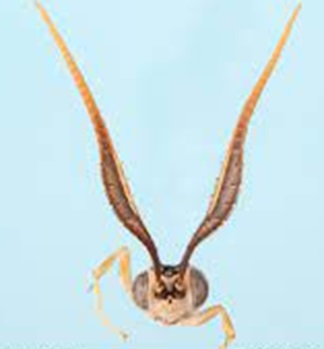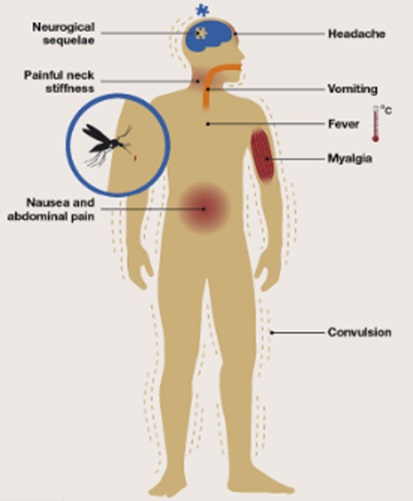Life Cycle of a Mosquito
1) What Is a Respiratory Siphon?
- A respiratory siphon is a long, slender tube-like organ that helps in respiration.
- The larval stage of mosquitoes has respiratory siphons that help in underwater breathing and respiration.
2) What Is the Function of Antennae?
- This part of the insect body performs sensory functions like smelling, hearing and touching.
- Antennae help the insect to feel the movements in the air. Antennas are also sensitive to carbon dioxide gas, enabling them to locate their hosts.

3) What Is Japanese Encephalitis?
Some malaria-causing pathogens are:
- It is a common disease spread by mosquitoes frequently in rural areas.
- It majorly affects farmers or those people who work in the agricultural fields.
- The symptoms of Japanese encephalitis are similar to cold and flu.
- It may cause severe brain swelling and disorientation with a high fever.

4) Which Types of Chemicals Are Used To Control Mosquitoes?
- Some chemicals in the market kill mosquitos by damaging their nervous system or affecting them physically.
- They can be categorised as adulticides and larvicides, which help kill the mosquitoes at adult and larva stages, respectively.
CBSE Schools In Popular Cities
- CBSE Schools in Bangalore
- CBSE Schools in Mumbai
- CBSE Schools in Pune
- CBSE Schools in Hyderabad
- CBSE Schools in Chennai
- CBSE Schools in Gurgaon
- CBSE Schools in Kolkata
- CBSE Schools in Indore
- CBSE Schools in Sonipat
- CBSE Schools in Delhi
- CBSE Schools in Rohtak
- CBSE Schools in Bhopal
- CBSE Schools in Aurangabad
- CBSE Schools in Jabalpur
- CBSE Schools in Jaipur
- CBSE Schools in Jodhpur
- CBSE Schools in Nagpur
- CBSE Schools in Ahmednagar
- CBSE School In Tumkur











